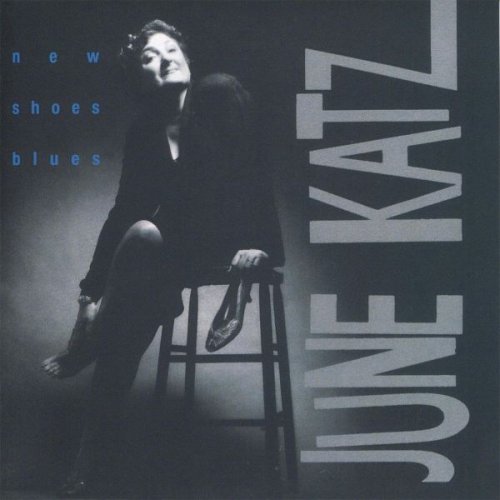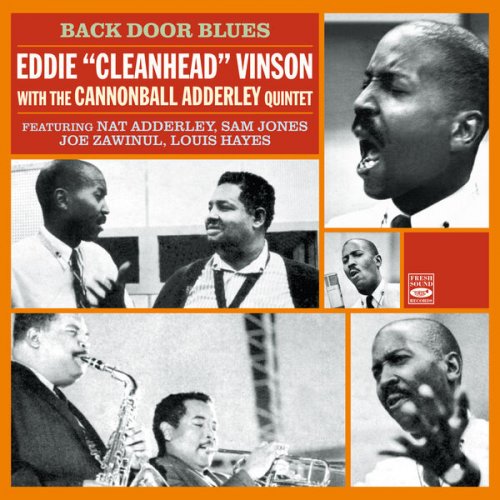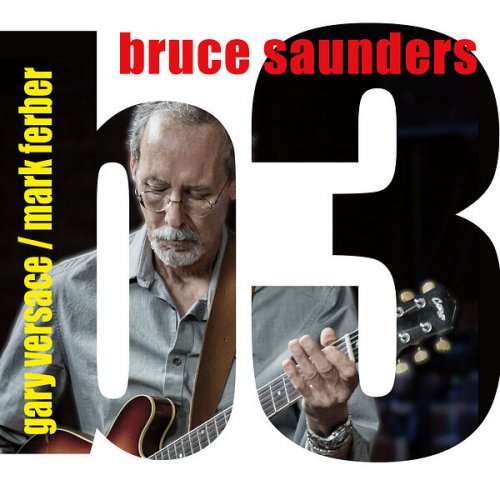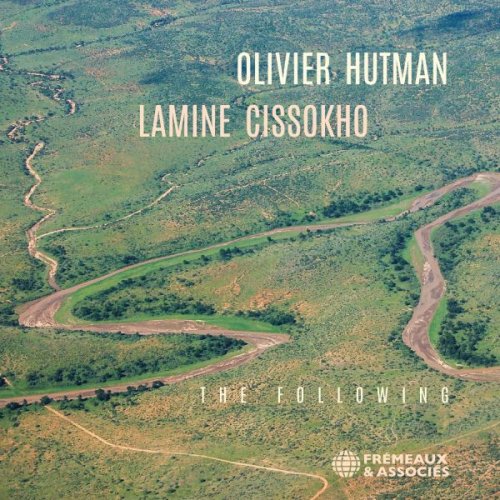Sharon Mansur - Trigger (2025) [Hi-Res]
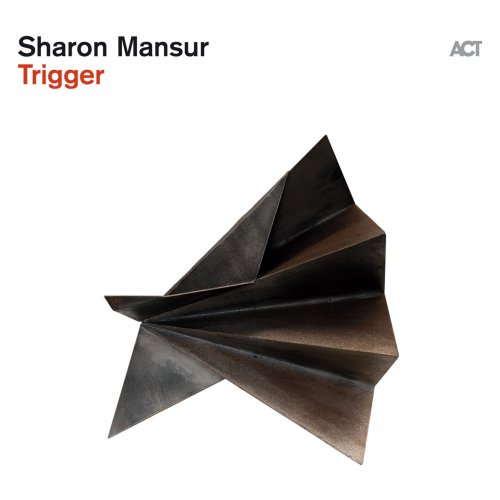
Artist: Sharon Mansur
Title: Trigger
Year Of Release: 2025
Label: ACT Music
Genre: Jazz
Quality: FLAC (tracks) / 24bit-44.1kHz FLAC (tracks+booklet)
Total Time: 39:52
Total Size: 227 / 428 MB
WebSite: Album Preview
Tracklist:Title: Trigger
Year Of Release: 2025
Label: ACT Music
Genre: Jazz
Quality: FLAC (tracks) / 24bit-44.1kHz FLAC (tracks+booklet)
Total Time: 39:52
Total Size: 227 / 428 MB
WebSite: Album Preview
1. Outside In (3:06)
2. Tunnel Maze (3:20)
3. If I Can (6:51)
4. February (4:12)
5. Trigger (8:01)
6. Change Your Narrative (4:29)
7. Big Dreams in Kadikoy (4:38)
8. From the OV (5:18)
Jazz, Middle Eastern traditions, metal, electronica, classical music...many of the different musical paths which Israeli pianist and keyboardist Sharon Mansur has followed since childhood have converged in her debut album for ACT, ‘Trigger’. At a time when the world is riven with tensions and contradictions, her fascinating, personal musical stories bring hope; her perspective is fundamentally and refreshingly optimistic.
“My first really strong experience of music was seeing “The Lion King” at the age of six,” Mansur remembers. “There were some powerful orchestral passages that felt like my heart was going to explode." The experience left a lasting impression. Sharon Mansur started studies of classical piano, immersed herself in the works of Chopin and Rachmaninov, but also developed a love for the great orchestral works. Alongside classical music, she listened to a lot of metal, psychedelic and progressive rock and played keyboards in a symphonic metal band – big, intense, loud music in a band with a classical opera singer as the frontwoman. She later discovered a fascination for improvisation in funk and blues bands and eventually began studying at the Jerusalem Academy of Music and Dance. “To be honest, initially I really I didn't exactly fit in. I was used to a lot of drama and raw energy from classical and heavy rock. Here everything was so light and playful. But what I immediately loved about jazz was the freedom and the playfulness – and the opportunity to find your own voice.”
Another key experience was a concert by the academy's faculty of Arabic music. “I instantly felt at home with this music,” Mansur remembers. “My father is from Iraq, so the melodies were deeply familiar, reminding me of those I heard growing up, and the odd meters felt natural to me as well, having listened to a lot of prog rock.” The matter-of-fact way in which Sharon Mansur has assimilated these extremely diverse musical influences shows strong parallels to the music of her native country: “There is no distinct Israeli traditional music. Because the country is so young, Israeli music is always a mix of influences – from Europe, the Middle East, the Mediterranean and North Africa.”
This blending of different traditions is also a characteristic of Israel's current pop and indie scene, in which Sharon Mansur has risen rapidly and now has a substantial profile. She has played with rock, pop and crossover acts such as Orphaned Land, the duo Yossi Fine & Ben Aylon and the Jerusalem Orchestra East and West, contexts in which she has learned to transfer the mystique of the quarter-tone melodies which are characteristic of Arabic and Middle Eastern music onto an electric keyboard. Under her stage name Shasha, Sharon Mansur is also a producer of electronic music and performs in clubs and at EDM festivals. She explains: “I also found I could approach Arabic and electronic music very intuitively and playfully. This, in turn, fits with my idea of jazz – of listening, improvising and following your instincts. I believe that the pioneers of jazz, such as Louis Armstrong, developed their style in this way – they learnt the music on the street, simply by listening and improvising.”
Sharon Mansur's ACT debut ‘Trigger’ – in her trio with double bassist David Michaeli from Israel’s hugely successful jazz export Shalosh and drummer David Sirkis – combines all these influences and creates a whole which is colourful and amazingly coherent. Powerful rhythms and melodies which recall Mansur's metal and classical background – as in the opening track ‘Outside In’ – are juxtaposed with cinematic, ethereal pieces like ‘If I Can’. Quarter-tone lines, as in the keyboard solo of ‘Big Dreams In Kadikoy’, alternate with piano eruptions on the title track ‘Trigger’. And Middle Eastern rhythms run through the entire album – there is not a single piece in 4/4 time to be found.
What is readily noticeable is quite how deeply Mansur has absorbed all of the disparate elements of this music. This mixture of diversity and depth is what makes the music of the album so special. She says: "A lot of the tracks are about loss and breakup, about how to grow from it, and also about finding something good and beautiful even in the darkest things. ‘Change your Narrative’ is a good example of that. It's about influencing the way you see things by shifting the perspective. For example, I'm terrified of flying, especially when there’s turbulence and the plane is getting shaken about. To combat that, instead of saying "I'm so scared", I try to change my perspective to "Hey, this is fun, we're going on a rollercoaster!"
Sharon Mansur's music, then, reveals a hopeful view of the world: “Music shows that we can work together, that we share the same emotions, even if we speak different languages. Music is the language of the heart, the language of nature. I hope that through music I can have at least a small positive influence on the world around me. I am very humble in that respect, I know that I know nothing. I just do what I do best. If I can make people in the same place from different cultures smile and cry together, then that means everything to me."
Sharon Mansur - piano & keyboards
David Michaeli - double bass
David Sirkis - drums
“My first really strong experience of music was seeing “The Lion King” at the age of six,” Mansur remembers. “There were some powerful orchestral passages that felt like my heart was going to explode." The experience left a lasting impression. Sharon Mansur started studies of classical piano, immersed herself in the works of Chopin and Rachmaninov, but also developed a love for the great orchestral works. Alongside classical music, she listened to a lot of metal, psychedelic and progressive rock and played keyboards in a symphonic metal band – big, intense, loud music in a band with a classical opera singer as the frontwoman. She later discovered a fascination for improvisation in funk and blues bands and eventually began studying at the Jerusalem Academy of Music and Dance. “To be honest, initially I really I didn't exactly fit in. I was used to a lot of drama and raw energy from classical and heavy rock. Here everything was so light and playful. But what I immediately loved about jazz was the freedom and the playfulness – and the opportunity to find your own voice.”
Another key experience was a concert by the academy's faculty of Arabic music. “I instantly felt at home with this music,” Mansur remembers. “My father is from Iraq, so the melodies were deeply familiar, reminding me of those I heard growing up, and the odd meters felt natural to me as well, having listened to a lot of prog rock.” The matter-of-fact way in which Sharon Mansur has assimilated these extremely diverse musical influences shows strong parallels to the music of her native country: “There is no distinct Israeli traditional music. Because the country is so young, Israeli music is always a mix of influences – from Europe, the Middle East, the Mediterranean and North Africa.”
This blending of different traditions is also a characteristic of Israel's current pop and indie scene, in which Sharon Mansur has risen rapidly and now has a substantial profile. She has played with rock, pop and crossover acts such as Orphaned Land, the duo Yossi Fine & Ben Aylon and the Jerusalem Orchestra East and West, contexts in which she has learned to transfer the mystique of the quarter-tone melodies which are characteristic of Arabic and Middle Eastern music onto an electric keyboard. Under her stage name Shasha, Sharon Mansur is also a producer of electronic music and performs in clubs and at EDM festivals. She explains: “I also found I could approach Arabic and electronic music very intuitively and playfully. This, in turn, fits with my idea of jazz – of listening, improvising and following your instincts. I believe that the pioneers of jazz, such as Louis Armstrong, developed their style in this way – they learnt the music on the street, simply by listening and improvising.”
Sharon Mansur's ACT debut ‘Trigger’ – in her trio with double bassist David Michaeli from Israel’s hugely successful jazz export Shalosh and drummer David Sirkis – combines all these influences and creates a whole which is colourful and amazingly coherent. Powerful rhythms and melodies which recall Mansur's metal and classical background – as in the opening track ‘Outside In’ – are juxtaposed with cinematic, ethereal pieces like ‘If I Can’. Quarter-tone lines, as in the keyboard solo of ‘Big Dreams In Kadikoy’, alternate with piano eruptions on the title track ‘Trigger’. And Middle Eastern rhythms run through the entire album – there is not a single piece in 4/4 time to be found.
What is readily noticeable is quite how deeply Mansur has absorbed all of the disparate elements of this music. This mixture of diversity and depth is what makes the music of the album so special. She says: "A lot of the tracks are about loss and breakup, about how to grow from it, and also about finding something good and beautiful even in the darkest things. ‘Change your Narrative’ is a good example of that. It's about influencing the way you see things by shifting the perspective. For example, I'm terrified of flying, especially when there’s turbulence and the plane is getting shaken about. To combat that, instead of saying "I'm so scared", I try to change my perspective to "Hey, this is fun, we're going on a rollercoaster!"
Sharon Mansur's music, then, reveals a hopeful view of the world: “Music shows that we can work together, that we share the same emotions, even if we speak different languages. Music is the language of the heart, the language of nature. I hope that through music I can have at least a small positive influence on the world around me. I am very humble in that respect, I know that I know nothing. I just do what I do best. If I can make people in the same place from different cultures smile and cry together, then that means everything to me."
Sharon Mansur - piano & keyboards
David Michaeli - double bass
David Sirkis - drums
Download Link Isra.Cloud
Sharon Mansur - Trigger FLAC.rar - 227.4 MB
Sharon Mansur - Trigger Hi-Res.rar - 428.1 MB
Sharon Mansur - Trigger FLAC.rar - 227.4 MB
Sharon Mansur - Trigger Hi-Res.rar - 428.1 MB
![Mateus Asato - ASATO (2026) [Hi-Res] Mateus Asato - ASATO (2026) [Hi-Res]](https://www.dibpic.com/uploads/posts/2026-02/1772112407_egqdz3e9dom2b_600.jpg)

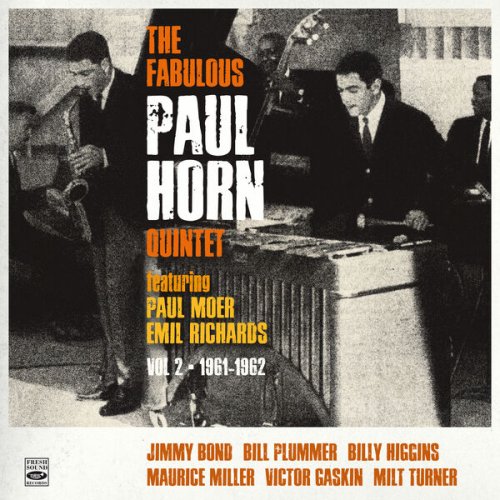
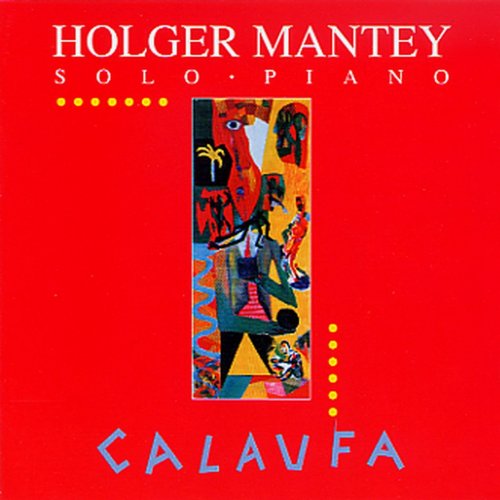
![The Mood Mosaic & Fausto Papetti - Bésame (Y Haz De Mi Cuerpo Tu Reino) (2026) [Hi-Res] The Mood Mosaic & Fausto Papetti - Bésame (Y Haz De Mi Cuerpo Tu Reino) (2026) [Hi-Res]](https://www.dibpic.com/uploads/posts/2026-02/1772125285_cover.jpg)
